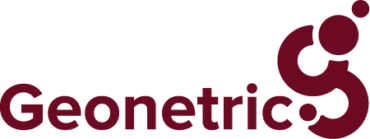Getting a peak behind the curtain at Google’s search algorithm has long been on digital marketers’ wish lists. Late last month, we got exactly that in the form of a then-anonymous leak that revealed previously unknown details of Google’s algorithm and how it collects data from users.
Among the algorithm factors included in the leaked documents are API references, internal memos, and development notes that all solidify one message: high-quality, authoritative content is still king (when paired with a comprehensive SEO strategy, of course).
So, how can healthcare marketers tap into this trove of knowledge without having to sift through more than 2,500 pages of API data? Here’s a high-level overview of the leaked information and how you can apply it to your organization’s content and SEO strategies.
Critical Algorithm Factors
The data released in the leak confirmed many of the things we assumed were important to Google regarding ranking content.
Search Engine Optimization
The leak provided several insights into some of the critical factors that play into how Google ranks content.
First, the algorithm places a significant focus on user intent, trying to understand and deliver results that line up with what users are trying to accomplish.
Next — and this shouldn’t come as a huge surprise — the quality of the content factors into how the algorithm ranks sites. Google still emphasizes high-quality, authoritative content, as well as E-A-T, or the expertise, authoritativeness, and trustworthiness of a piece of content.
Finally, in the SEO realm, the quality and relevance of any backlinks in a piece of content remain critical to how well that site performs.
Entity-Based Search
The leak also released information about how the algorithm prioritizes entity recognition, in which entities like people, places, and things rank better than simple keywords.
We also learned more about the role the Knowledge Graph — Google’s database of billions of facts about people, places, and things — plays in connecting entity-based searches and providing contextual relevance.
Publisher Reputation
Another leaked data point that isn’t a shock but that marketers still need to prioritize is reputation. Google prefers content from reputable publishers and recognized authors, as well as information published with clear editorial oversight.
Content Strategy
One part of the leak that we were especially excited to read up on was the data surrounding content strategy.
The leak showed that in-depth content — longer, more detailed articles — ends up performing better than content that’s short and to the point. Integrating multimedia elements like images, videos, and infographics can also enrich the content and help it perform better in search rankings.
Technical Insights
The leaked data indicated that page speed metrics are more nuanced than many had assumed, considering factors beyond simple load time.
Google’s prioritization of mobile-friendly content is still ongoing, and it’s placing an increased importance on schema markup and rich snippets.
User Experience
The leaked information revealed that core web vitals play an enhanced role in ranking, with a focus on load time, interactivity, and visual stability. Google is now also considering bounce rate in context with other engagement metrics.
Strategic Recommendations
Let’s break the information in the leak down into recommendations you can put into practice today to help your website or blog perform better in Google’s search results.
Content Refreshing
Make it a habit to regularly update and expand your website content to maintain its relevance. The only content that search engines like more than relevant, user-friendly content is relevant, user-friendly content that has been updated recently.
This may require some advanced governance or tracking on your end to ensure that content available online for a certain amount of time is flagged for revision. Thankfully, depending on the content itself, this refresh could be as simple as minor updates or as complex as a thorough rewrite.
Intentional Structure
You can create content clusters — content that’s organized around a certain theme to boost its relevance — by building or restructuring sections of your website and creating internal links to each piece of content. By interconnected relevant pages you can create a web of content that’s not only easy for search engines to crawl, but for users to navigate as well.
Expertise
Help build up your editorial authority and oversight by highlighting the author of your blog posts and news articles. Whether you have an in-house editorial staff or are ghostwriting articles for providers, sharing information about who wrote what through author panels and schema can help drive your articles to the top of relevant local results.
Schema
Speaking of schema, adding industry-specific schema structured data (such as frequently asked questions, reviews, ratings, etc.) to your service lines, providers, locations, and article pages will ensure that search engine algorithms and artificial intelligence have an easily understandable cheat sheet when crawling your site.
Topic Authority
You can build comprehensive resources and become an authority on specific topics with intentional internal and external linking. A combination of robust service line sections and linked articles will provide compounding authority, showing users and search engines alike that your organization has the expertise they’re looking for.
Local Authority
You can also rely on local relevance by optimizing with providers, locations, and distinct services in mind. You may need to rethink your current provider and location profile strategies to make sure crucial information and conversion points are included, but optimizing them for search can help you overtake your competition’s search engine real estate.
Expert Help
If your organization could use a hand applying overall SEO practices and the information from the Google leak to your website strategies, Geonetric is here to help.
We have 25 years of experience navigating changes in Google’s algorithms, and our team is ready to put that expertise to work for your organization. Contact us today to learn more!

